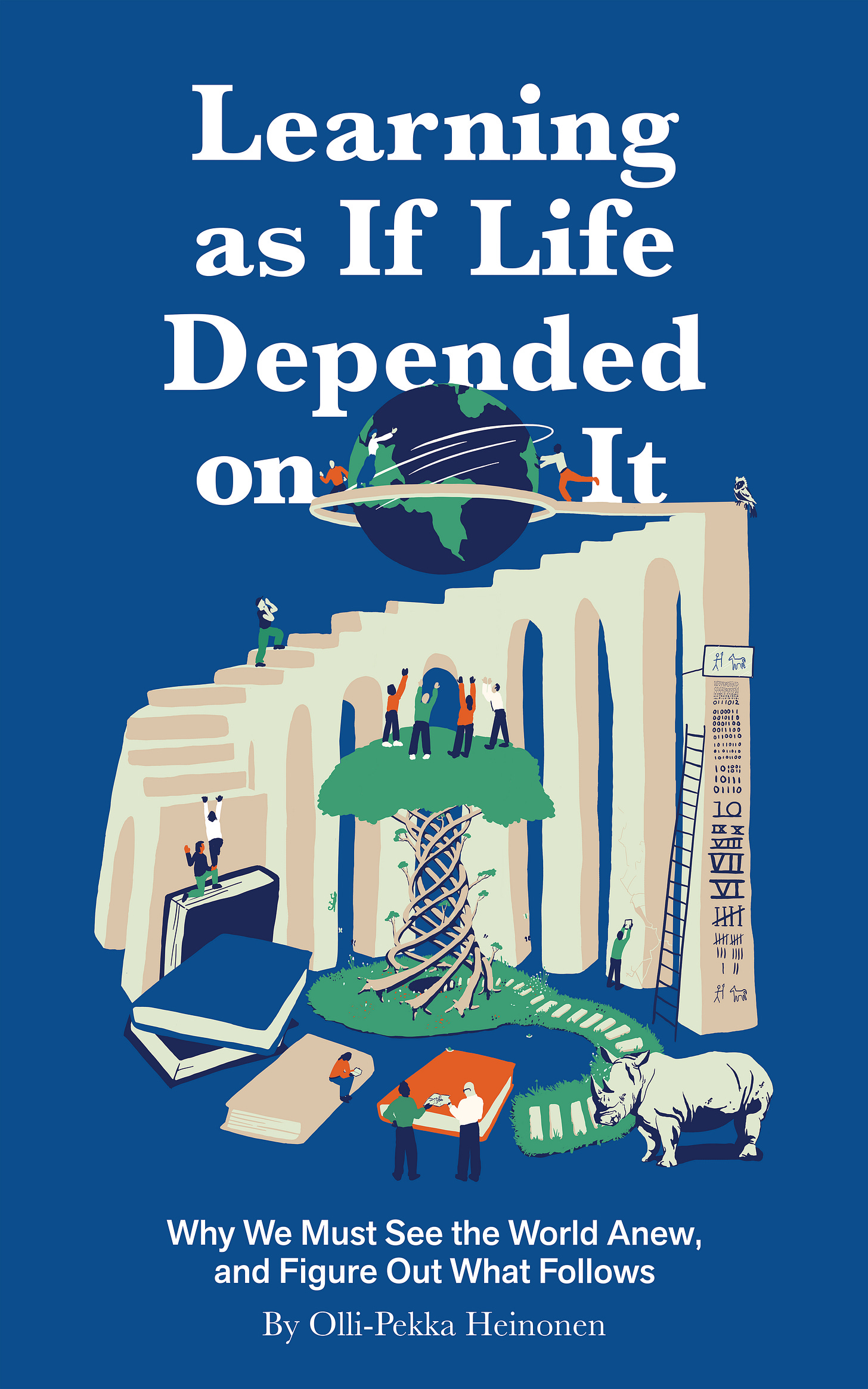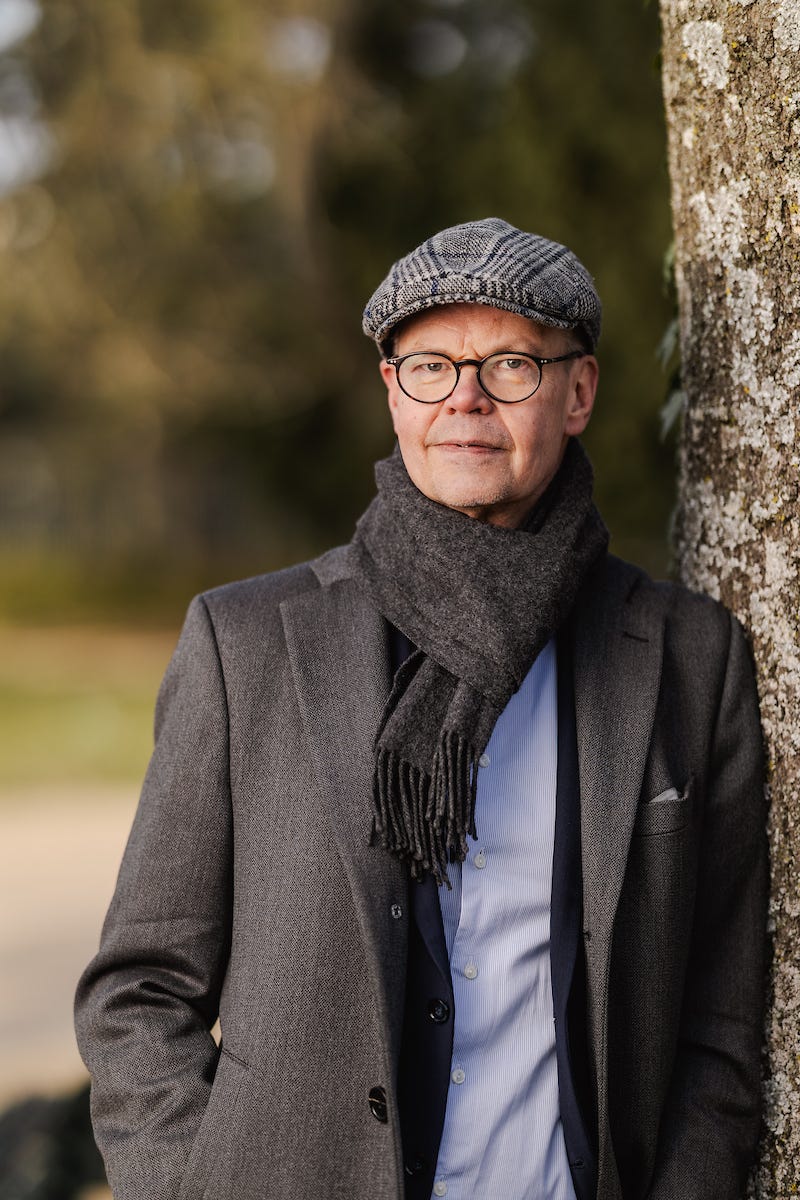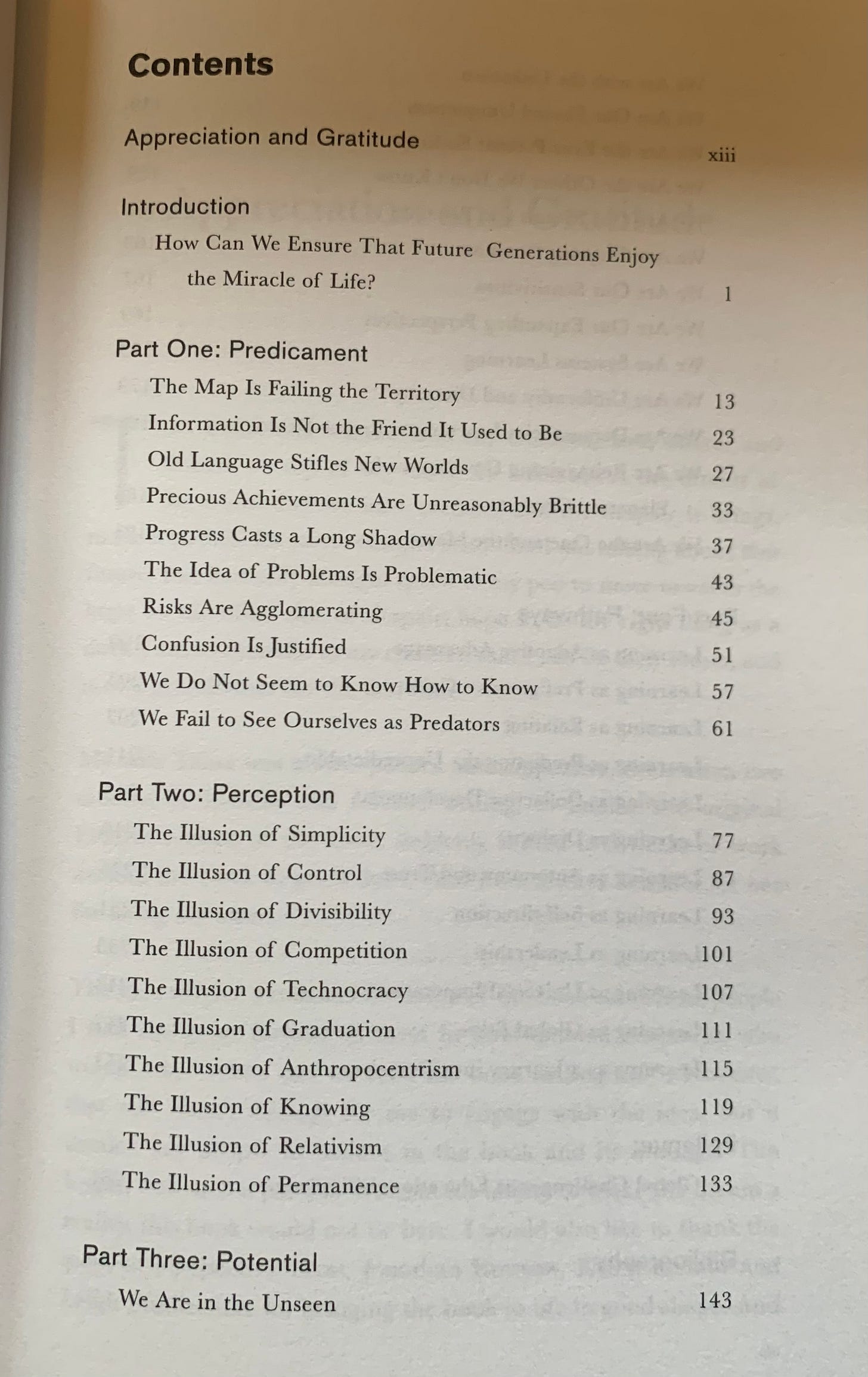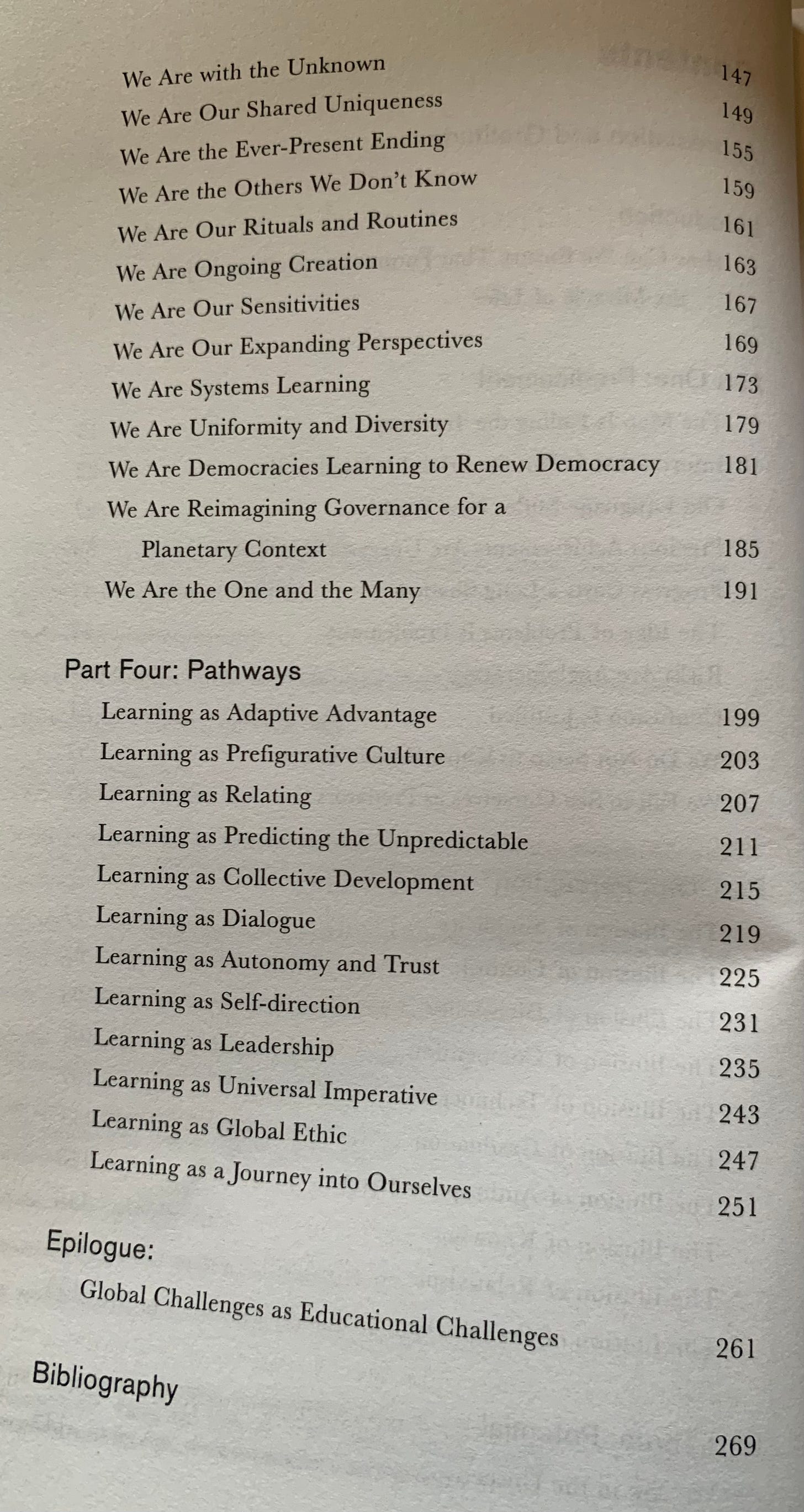Learning as If Life Depended on It
Why We Must See the World Anew and Figure Out What Follows
Perspectiva is pleased to announce our next book!
Learning as If Life Depended on It: Why We Must See the World Anew and Figure Out What Follows, by Ollie-Pekka Heinonen, will be released very soon, on November 4th 2025, so please pre-order it now. (Pre-orders really help!)
How can we ensure that future generations enjoy the miracle of life?
Learning as if Life Depended on it is a work of planetary reckoning by the Director General of the International Baccalaureate, Olli-Pekka Heinonen. Informed by his statesmanship and Finnish cultural heritage, Heinonen explains why the root cause of global crises is the failure to perceive the ideas we live and work with. Heinonen offers a four-part journey through our current predicament, the illusions we live by, our untapped potential, and transformative pathways. Education, he argues, must now become a collective act of reorientation.
I’m not sure how best to convey my excitement in this book, but my friend and mentor Guy Claxton puts it as follows:
Civilisation is under threat. Large numbers of people who are thoughtful, ethical and brave are required to protect it. Education ought to be the incubator of such people. Educationists who can see clearly what’s needed, and show schools the way back to their fundamental purpose are in short supply – but Olli-Pekka Heinonen has emerged as the leader of this small but crucial pack. In this wise, lucid and heartfelt book he offers us hope and direction, not just for the regeneration of education, but for the preservation of our planetary home.
– Professor Guy Claxton, author of The Future of Teaching and the Myths That Hold It Back.
*
Olli-Pekka Heinonen has served as Director General of the International Baccalaureate (IB) since 2021, advancing its mission to develop inquiring, knowledgeable, and caring students. He emphasises the IB’s commitment to critical thinking, intercultural understanding, and holistic, learner-centred education that equips students for meaningful contributions to a more peaceful, sustainable world.
Before joining the IB, Mr Heinonen served as Director General of the Finnish National Agency for Education, State Secretary to the Finnish Prime Minister and as Director of Yle, Finland’s national public broadcaster. Earlier, Mr Heinonen was a prominent figure in Finnish politics, serving as Minister of Education and Science, Minister of Transport and Communication, and as a Member of Parliament.
A graduate of the University of Helsinki with a Master of Laws, Mr Heinonen holds honorary doctorates from the University of Jyväskylä and the University of Turku. He is married and has three children. In his free time, he enjoys sports, cooking, history, and playing the trumpet.
*
The book began as an English translation by Eva Malkki, from the original Finnish text, Eletaan Ihmisiksi - Yhteisollista viisautta etsimassa by Olli-Pekka Heinonen. That translation was adapted and edited in close collaboration with the author, to reshape the structure and expression for a new readership, as you can see in what are hopefully intriguing contents pages:
I see the book as a work of epistemic leadership - it’s about encouraging educators to wholeheartedely reckon with the state of the world and consider what follows for how we encourage each other to try to understand it. We almost called the book Beyond Problems and Solutions because it is expansive in spirit, encouraging to readers to see the world anew (and yes, I had a say in that great word being part of the subtitle).
Olli-Pekka has a significant international education platform and his recent LinkedIn post suggests there is a large appetite for this work. Perspectiva’s hope is that by publishing this book to an English-language audience and to the IB network, we will play our part in helping educational institutions speak to the challenges of our times.
There is more to say substantively, but the other thing that drew me to the book was Olli-Pekka’s distinctive writing style, which is sometimes strikingly aphoristic. I will whet your appetite for the book with a few gentle zingers:
We are like coastal flowers transplanted into the mountains.
Perhaps the time for striving for a consistent, singular worldview is over.
Utopias are like meta-level answers to questions that were unanswerable in the first place.
Horseless carriages – later known as cars.
The future has become a threat, a possible disaster that we would like to escape from into the past.
The sport of jumping to conclusions is not a healthy one to practise: the risk of jumping in the wrong direction is high.
We handle risks as discrete phenomena, rather than as cumulations of interdependent hazards.
Invulnerability is a dangerous illusion, which makes us unable to prevent the snake from slithering into Eden.
Like driving on a windy mountain road in a car with a locked steering wheel.
Fear drives groups together like herds of antelope running from a lion.
Democracy cannot be based on fear; it must stand on reciprocal trust, which is one of the hallmarks of love.
Humanity appears to have regressed into adolescence.
It is not enough to be authentic, because you can be inauthentically authentic.
A game is only fun when you take it seriously.
Breaking poor routines is an act of everyday heroism.
“Being yourself” doesn’t work by yourself.
I would like to have been a fly on the wall, back when there were no flies or walls.
Tomorrow morning, when you squeeze your stripy toothpaste onto your brush, consider how it got there.
The system changes when the nature of its interactions changes.
Instead of carefully defining what each member of the organisation should do, it is more important to determine what no one should be doing.
It is a perspective shift from solving problems to developing the system.
We believe that we, as humans, protect nature. The situation is fundamentally the opposite: nature protects us.
**Climate change will not invite us to the negotiating table when things get really bad.
Transformation is about viewing the world differently so that the world we view also changes.
I hear my former politician self, asking whether an election can be won going down that route.
Slowness is a quality of the brave.
We have been incredibly efficient in turning natural resources into economic ones. Now we must consider how to turn our economic resources back into natural ones.
This is a journey. Journeys take time.
We’ll have more to say about this book in due course, but we are very proud to be publishing it, and very grateful for your support in pre-ordering it.
The cover design is by Christopher Burrows, but all responsibility for the rhinoceros rests with me. If you think you know why it might be there, please let us know in the comments.








An interesting reading, Jonathan. Next year, my son will start College, probably Exeter College, and he is unsure whether to take the International Baccalaureate or the normal A-Levels.
Regarding the rhinoceros, my try, ;-)
'Rhinoceros' is a play by playwright Eugène Ionesco and this paragraph regarding 'Art' (and education) could fit...
“Modern, universal man is man in a hurry; he has no time, he is a prisoner of necessity, he does not understand that a thing need have no use; Nor does he understand that fundamentally it is the useful thing that can become a useless and overwhelming burden. If one cannot understand the usefulness of the useless, and the uselessness of the useful, one cannot understand art; and a country in which art is not understood is a country of slaves and robots, a country of unhappy people, who neither laugh nor smile, a country without mind or spirit; where there is no humour, where there is no laughter, there is anger and hatred.”
… things are not as they seem
pre-ordered through my local, with thanks